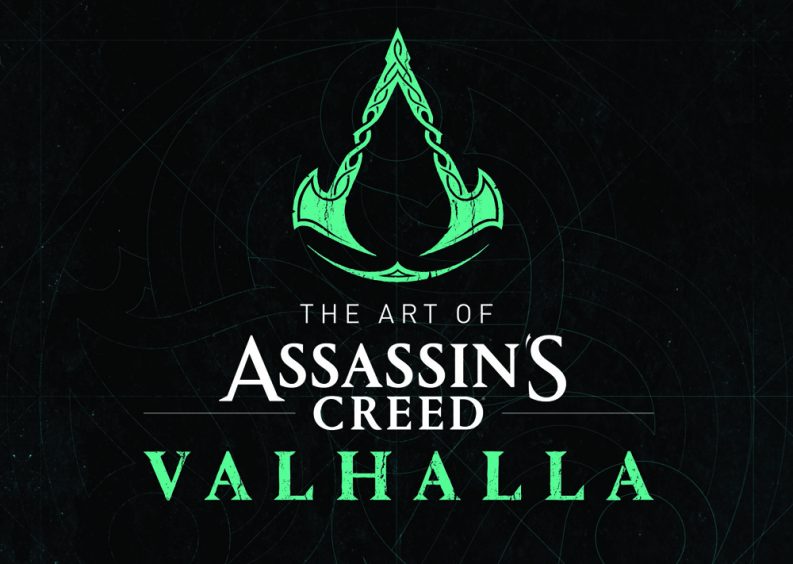Ubisoft’s Assassin’s Creed series has come a long way since it’s inception. It’s no longer just a fantasy pseudo historical adventure series, now it’s almost a full blown RPG with a playtime that’s extendted into hundreds of hours and more quests than you could shake a quest generator at.
With the success of the Vikings television series, it was almost a no brainer that we’d get a viking themed AC game (assuming it hadn’t been longer in the planning). And with the success of both Origins and Odyssey in forging ahead with the new RPG gameplay style, Valhalla is looking set to follow both of those games design footsteps while expanding upon them at the same time.
Set in 843 AD, Valhalla places you in the shoes of Eivor, whose gender you can choose at the beginning of the game and then swop between on the fly, who is looking to make a new home in merry olde England. Of course, this wouldn’t be an Assassin’s Creed game without the war between the Order of The Ancients (Templars) and The Hidden Ones (The Brotherhood of Assassins) pulling you into it.
The heart of Valhalla will be Ravensthorpe, your Viking settlement. It’s been a long time since the Assassin’s games have provided you with a home that mattered and Ravensthorpe is key to your story and progression. Your little settlement will be upgradable using components found during your questing and exploration, with each new building and shop you build or upgrade providing you with boosts and benefits along with new gear to get. Of far more significance is that most of your quests will begin here, and it’s here that many of them will dovetail back into.
Here you’ll be able to upgrade your raiding craft, hire a personalised band of reavers to sail along with, and share between friends online along with a whole bunch of other things, making Ravensthorpe more than just a gimmick.
Of significance to Assassin’s Creed fans is the return of the hidden blade and gameplay designed to incorporate whatever way you decide to play. If you want to assault castles head-on you can do that, but the developers have decided to put as much work into stealthily shanking your way through locations now as well. As much as the series has been titled Assassin’s Creed, actual stealthy assassinations have never been one of the series’ stronger points. With Origins and Odyssey, the systems worked better for this, assuming you had the patience when infiltrating a stronghold. The hidden blade won’t be a one-all killathon as in previous games though. In fact, its effectiveness will be tied into the games new skill tree system.
You’ll still have the ability system that Odyssey expanded so much on, but now the skill tree system seems to have been modelled somewhat after Skyrims, with the various branches looking like constellations and each point along the constellation containing new abilities to unlock, such as increasing the damage of the hidden blade. Traditional levelling seems mostly to have got the boot too, with the game’s difficulty decided by your collection of skills.
The loot system and character customization options have been increased as well. In Ravensthorpe you can go ahead and decide what tattoos you want while the games gear is now going to have larger emphasis on legendary sets. Excalibur seems to be in the game as well.
One of the things I loved about Assassin’s Creed 1 was the game’s distinctive visual style. For me it is still the most artistic of the games as each area had its own art pallet so you always knew exactly where you were. Later games ditched this for a traditional open-world day and night setting along with a lighting system that tried more to replicate the real world. Odyssey began to show some inclination to make the world more than just real-world beautiful, showcasing some truly stunning vistas, but it seems that Vikings will be taking a page from the first Assassin’s Creed game with a more artistic approach to lighting and setting, turning the real-world depiction of England into a more mythological, but recognizable version. Despite Englands weather, the more artistic side to colour and composition can be seen in the trailers and screenshots.
Finally, Norse mythology will play a big role in Valhalla. You’ll be able to go on vision quests that will let you walk between the realms. Asgard and Jotunheim have already been confirmed. How much these vision quests will actually play into the overall story still remains to be seen, but the mystical side to the AC universe that was introduced in Origins is one of the big drawcards for me for Valhalla. I’d play this alone to just to go to Asgard and see how the Assassin’s Creed version of it is represented and how it ties into the games overall Isu mythology.
Hopefully, by now you’ll have completed the mega odyssey that is, well Odyssey, and be ready to go on a new one when Assassin’s Creed Valhalla launches on November 10th.
Written by By M. A. Ligocki
If you enjoy games and gaming and want more NEWS from the Gaming World Click Here







